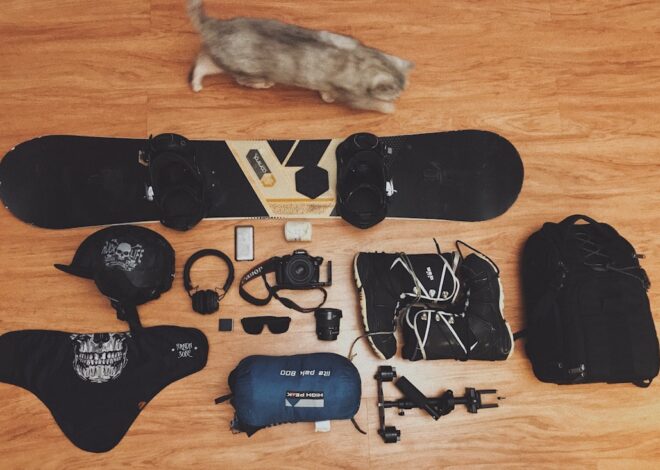
Insurance Policies for Travel Trailer Park at Campground
Travel trailer park insurance is a specialized form of coverage designed to protect the unique assets and liabilities associated with operating a travel trailer park. This type of insurance is essential for park owners, as it addresses the specific risks that come with managing a facility where multiple recreational vehicles are parked. Unlike traditional property insurance, travel trailer park insurance encompasses a broader range of potential liabilities, including those related to guests, their vehicles, and the park’s infrastructure.
At its core, travel trailer park insurance provides financial protection against various risks, such as property damage, liability claims, and loss of income due to unforeseen events. For instance, if a guest’s trailer sustains damage due to a storm or if someone is injured while on the premises, the insurance can cover the costs associated with these incidents. Understanding the nuances of this insurance is crucial for park owners to ensure they have adequate protection tailored to their specific needs.
Key Takeaways
- Travel trailer park insurance is essential for protecting the property, assets, and liability of the park owner.
- Types of coverage available include property insurance, liability insurance, business interruption insurance, and more.
- When choosing insurance, factors to consider include the location of the park, the size of the park, the amenities offered, and the potential risks involved.
- Liability coverage is crucial for protecting the park owner from lawsuits and claims resulting from accidents or injuries on the property.
- Special considerations for natural disasters and weather-related damage should be taken into account when selecting insurance coverage for a travel trailer park.
Types of Coverage Available for Travel Trailer Parks
Property Coverage: Protecting Physical Assets
Travel trailer park insurance typically includes property coverage, which safeguards the physical assets of the park, including buildings, utilities, and landscaping. This coverage can extend to structures such as restrooms, laundry facilities, and recreational areas that are integral to the park’s operation.
Liability Coverage: Protection from Guest-Related Claims
Liability coverage is another critical component of travel trailer park insurance.
For example, if a visitor slips and falls on a wet surface or if a child is injured while playing in a common area, liability coverage can help cover medical expenses and legal fees.
Specialized Coverage Options: Additional Financial Protection
Some policies may offer specialized coverage options, such as equipment breakdown insurance or business interruption insurance, which can further safeguard the financial stability of the park. These additional coverage options can provide park owners with extra peace of mind and financial protection in the event of unexpected events or disruptions.
Factors to Consider When Choosing Insurance for a Travel Trailer Park

When selecting insurance for a travel trailer park, several factors must be taken into account to ensure comprehensive coverage.
Larger parks with more amenities may require higher coverage limits and additional types of insurance compared to smaller operations.
Understanding the specific features of the park, such as the number of sites available and any unique facilities offered, can help determine the appropriate level of coverage. Another important factor is the location of the travel trailer park. Parks situated in areas prone to natural disasters, such as hurricanes or wildfires, may need additional coverage options to protect against these risks.
Additionally, local regulations and zoning laws can influence insurance requirements and available coverage options. It is essential for park owners to familiarize themselves with these regulations to ensure compliance and adequate protection.
The Importance of Liability Coverage for Travel Trailer Parks
| Liability Coverage Importance | Reasons |
|---|---|
| Protection | Provides financial protection in case of accidents or injuries on the property |
| Legal Requirements | May be required by law or regulations to operate a travel trailer park |
| Peace of Mind | Offers peace of mind for park owners and visitors in case of unforeseen events |
| Financial Security | Helps cover legal expenses and settlements in case of liability claims |
Liability coverage is arguably one of the most critical aspects of travel trailer park insurance. Given that parks host numerous guests who may engage in various activities on-site, the potential for accidents and injuries is significant. Liability coverage serves as a safety net for park owners, protecting them from financial repercussions resulting from claims made by injured parties.
For instance, if a guest sustains an injury due to a poorly maintained pathway or if their property is damaged due to negligence on the part of the park staff, liability coverage can help cover legal fees and settlements. Without adequate liability protection, park owners could face substantial financial burdens that could jeopardize their business. Therefore, investing in robust liability coverage is essential for safeguarding both the owner’s assets and the well-being of their guests.
Special Considerations for Natural Disasters and Weather-related Damage
Natural disasters pose a significant threat to travel trailer parks, making it imperative for owners to consider specific coverage options that address these risks. Weather-related damage can result from various events, including floods, hurricanes, tornadoes, and wildfires. Each type of disaster presents unique challenges and potential damages that must be accounted for in an insurance policy.
For example, parks located in flood-prone areas may need to secure additional flood insurance to protect against water damage that standard property policies might not cover. Similarly, parks situated in regions susceptible to hurricanes should consider windstorm coverage to safeguard against damage caused by high winds and flying debris. Understanding the local climate and potential natural hazards is crucial for park owners when selecting appropriate insurance coverage.
Insurance Requirements for Travel Trailer Parks at Campgrounds

Legal Requirements
Insurance requirements for travel trailer parks can vary significantly depending on local laws and regulations. Many campgrounds require park owners to carry specific types of insurance as a condition for operating within their jurisdiction. These requirements often include general liability insurance, property insurance, and sometimes even workers’ compensation if employees are involved in managing the park.
Campground Policies
In addition to legal requirements, campgrounds may also have their own policies regarding insurance coverage. For instance, some campgrounds may mandate that all guests have their own liability insurance for their trailers or RVs while staying on-site.
Risk Mitigation
This requirement helps mitigate risks associated with guest activities and ensures that both the campground and its visitors are adequately protected in case of accidents or damages.
Tips for Finding the Right Insurance Provider for a Travel Trailer Park
Finding the right insurance provider for a travel trailer park involves careful research and consideration. One effective approach is to seek out insurers who specialize in recreational vehicle or campground insurance. These providers often have a deeper understanding of the unique risks associated with travel trailer parks and can offer tailored policies that meet specific needs.
Additionally, obtaining multiple quotes from different insurers can help park owners compare coverage options and premiums effectively. It is essential to review not only the cost but also the extent of coverage provided by each policy. Reading customer reviews and seeking recommendations from other park owners can also provide valuable insights into an insurer’s reputation and reliability.
The Benefits of Having Comprehensive Insurance for a Travel Trailer Park
Comprehensive insurance for a travel trailer park offers numerous benefits that extend beyond mere financial protection. One significant advantage is peace of mind; knowing that potential risks are covered allows park owners to focus on providing an enjoyable experience for their guests without constantly worrying about unforeseen liabilities. Moreover, comprehensive insurance can enhance the overall reputation of a travel trailer park.
Guests are more likely to choose a park that demonstrates responsible management practices, including adequate insurance coverage. This perception can lead to increased bookings and customer loyalty over time. Additionally, having comprehensive coverage can facilitate smoother operations during emergencies or claims processes, ensuring that any disruptions are managed efficiently and effectively.
In conclusion, understanding travel trailer park insurance is vital for owners looking to protect their investments and provide safe environments for their guests. By considering various types of coverage available, evaluating specific needs based on location and size, and selecting reputable providers, park owners can secure comprehensive protection that safeguards their business against potential risks while enhancing guest experiences.
FAQs
What is a travel trailer park at a campground?
A travel trailer park at a campground is a designated area within a campground where individuals can park and set up their travel trailers for temporary stays. These areas typically offer amenities such as water and electrical hookups, as well as access to the campground’s facilities and activities.
What insurance policy is needed for a travel trailer park at a campground?
Individuals who own or rent a space in a travel trailer park at a campground should consider purchasing a specialized insurance policy known as travel trailer insurance. This type of insurance provides coverage for the trailer itself, as well as liability coverage in case of accidents or injuries that occur within the park.
What does travel trailer insurance typically cover?
Travel trailer insurance typically covers physical damage to the trailer caused by accidents, theft, vandalism, or natural disasters. It may also provide liability coverage for injuries or property damage that occur within the park, as well as coverage for personal belongings inside the trailer.
Are there any additional insurance considerations for a travel trailer park at a campground?
In addition to travel trailer insurance, individuals may also want to consider purchasing additional coverage such as roadside assistance, emergency expenses, and vacation liability coverage. These additional coverages can provide extra protection and peace of mind while staying in a travel trailer park at a campground.



